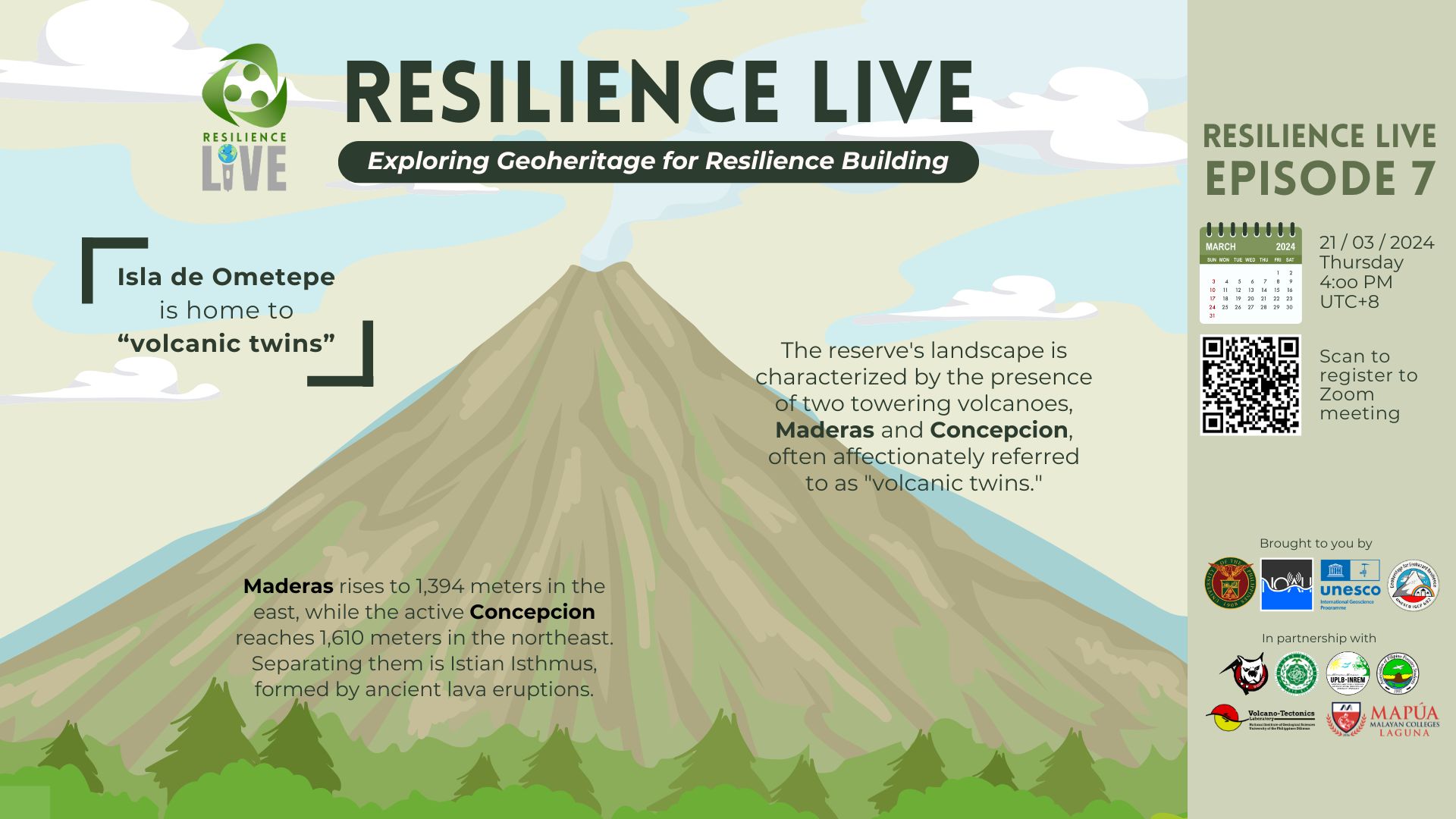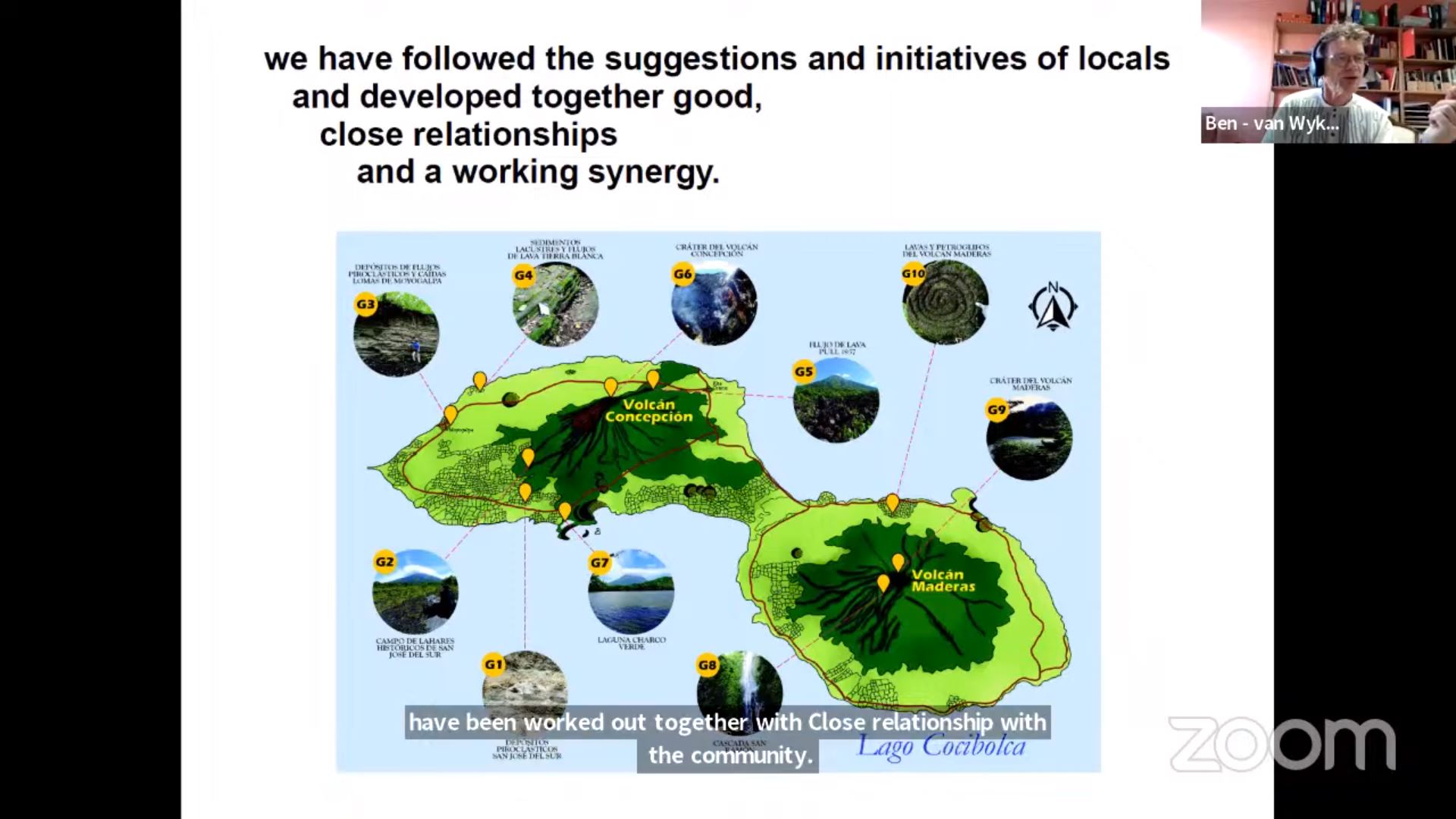Written by: For. Janiella Sandoval and Ella Santiaguel
The Resilience Live webinar series, in its 7th episode, brought to light the groundbreaking geopark project in Isla de Ometepe, Nicaragua, and the pivotal role of science-based information in empowering the local community.

The episode featured Dr. Benjamin van Wyk de Vries, a professor of volcanology at Université Clermont Auvergne in France. Dr. Ben’s works and expertise encompass volcanic hazards, including catastrophic collapses and debris avalanches, volcano tectonics, and monitoring surface deformation by videogrammetry and photo-digital imaging. He is also a project chair in the UNESCO International Geosciences project “Geoheritage for Resilience”.
Dr. Ben’s journey into the heart of Ometepe began fueled by a youthful fascination that blossomed into a profound commitment as a scientist. His presentation shed light on the gap between the island’s international recognition as a geoheritage hub and the limited knowledge shared with its inhabitants. The geopark project was born to bridge this disparity, integrating scientific insights with local wisdom.
Central to his approach is participatory science, wherein locals actively contribute to and benefit from the project. By fostering collaborative relationships, the initiative ensures that scientific endeavors align with the community’s needs and aspirations. An example shared by Dr. Ben highlighted how interviews with locals not only enriched geological understanding but also addressed pressing concerns, such as land tenure security, essential for livelihoods.
Reflecting on this holistic approach, Dr. Ben emphasized the necessity of contextualizing science within the community’s realities. He stressed the importance of humility in recognizing that scientific knowledge must serve the people, not overshadow their needs. Moreover, he underscored the necessity for projects like Ometepe geopark to offer tangible benefits, ensuring sustained engagement and long-term viability to the community and scientists.

“It’s more than just imparting geological information,” Dr. Ben remarked during the webinar, “It’s about thinking about what is important to the local community and putting the science, and the geology in the context of that. We as scientists tend to think that our work is all important, but it’s very humbling and very necessary to put it in the context of what people really need and then to work with that so that you could make it useful.”
In essence, Dr. Ben’s emphasis on bridging scientists and local communities underscores the vital role of shared knowledge responsibility. Projects like the Isla de Ometepe geopark not only enhance scientific knowledge but also empower local communities to safeguard their homes and improve their quality of life. By giving back the benefits of science to the community, residents gain useful insights and tools to address socio-economic and environmental challenges and enhance their resilience. This collaborative relationship between science and society not only fosters mutual understanding but also paves the way for sustainable development and harmonized communities. As such, initiatives like the Isla de Ometepe geopark serve as inspiring examples of how bridging the gap between science and local communities can create positive change and serve as models for similar initiatives around the globe.
Episode 7 featuring Dr. Benjamin van Wyk de Vries may be viewed here:
